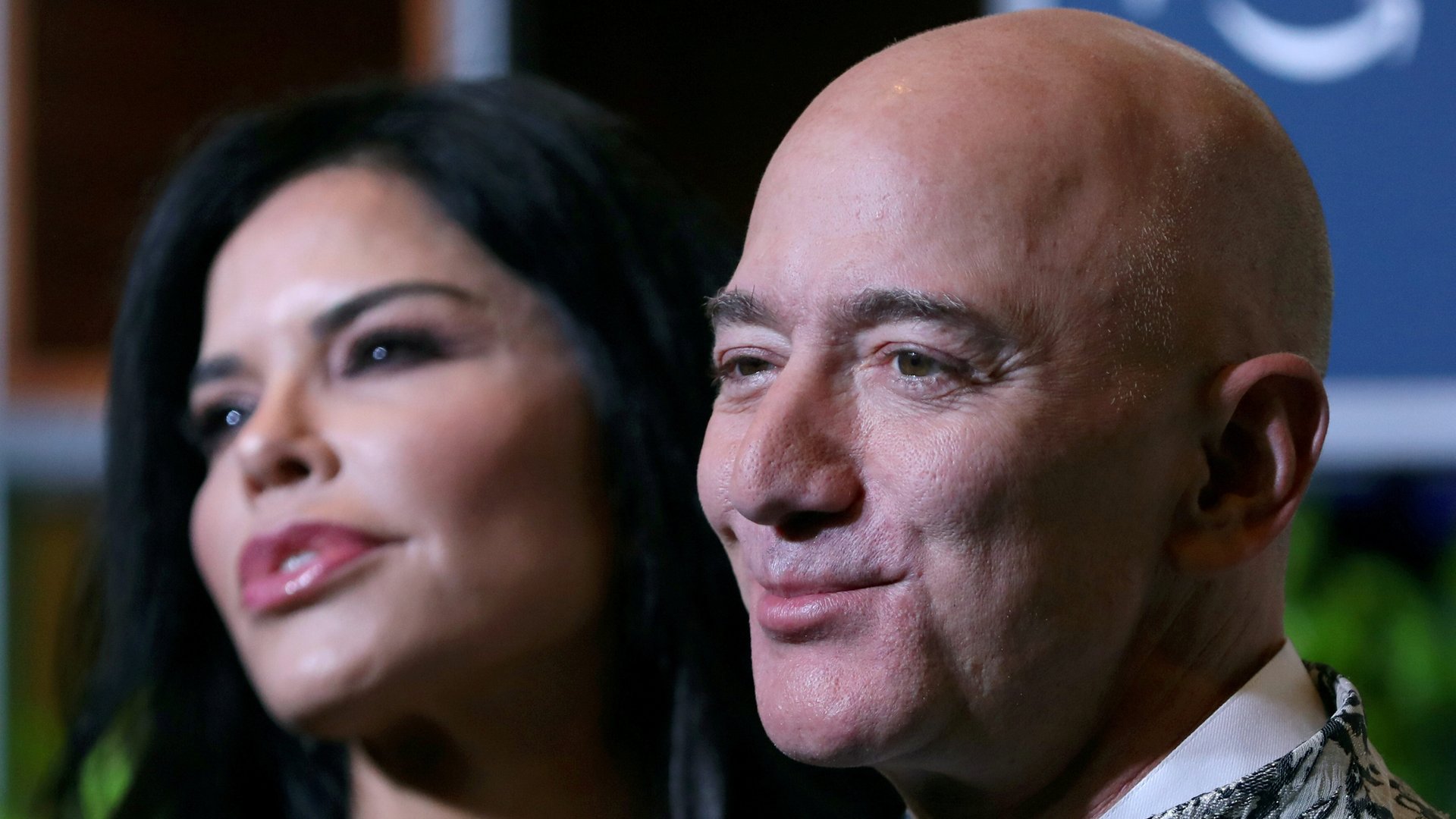Jeff Bezos is now the biggest climate activism donor—and that’s a problem
On Nov. 16, Amazon founder Jeff Bezos announced the first round of grantees from his “Earth Fund,” which has committed to ultimately channel $10 billion to climate change-related causes and groups. In this first crop, 16 organizations will receive a total of $791 million, making Bezos the world’s biggest backer of climate activism. In one day, he single-handedly boosted the total amount of climate-related philanthropic funding available in the US by around 11%.


On Nov. 16, Amazon founder Jeff Bezos announced the first round of grantees from his “Earth Fund,” which has committed to ultimately channel $10 billion to climate change-related causes and groups. In this first crop, 16 organizations will receive a total of $791 million, making Bezos the world’s biggest backer of climate activism. In one day, he single-handedly boosted the total amount of climate-related philanthropic funding available in the US by around 11%.
But the list of recipients is raising some objections—both because of its potential to greenwash Amazon’s own climate accountability, and because it significantly favors well-funded Beltway institutions over grassroots groups that arguably need the money more.
The organizations represented in the investments all have solid reputations for climate activism: The largest individual grants will go to top Washington DC environmental groups, including the World Resources Institute (WRI), Environmental Defense Fund (EDF), and Natural Resources Defense Council (NRDC). But that list of familiar organizations is also, according to critics, precisely the problem.
“This is representative of the kind of leadership Bezos is providing, which is big and clumsy and misinformed,” said Angela Mahecha Adrar, executive director of the Climate Justice Alliance, a network of 70 grassroots groups, none of which were grantees. “He made big investments in outdated, conservation-style organizations that are not resolving climate at the rate we need to and that still get to decide, as predominantly white organizations, what priorities to focus on, and what strings to attach.”
Those priorities, for the most part, focus on tech-savvy approaches to curbing greenhouse gas emissions, including two emissions-monitoring satellite systems, electric school buses, and carbon capture on farms and forests. These are all perfectly worthy enterprises, if skewed away from the climate justice and labor issues that tend to be priorities for grassroots groups and in progressive climate policy wish-lists like the Green New Deal. Of the $791 million, $151 million will go to groups identified by the Earth Fund as focused on climate justice issues.
But Matthew Nisbet, a professor of environmental communication at Northeastern University who has studied climate philanthropy, said it’s not clear they will do enough to offset the impact of Amazon’s own operations. The Earth Fund, he said, is designed to “help distract away from concerns about Amazon’s track record on labor rights and emissions.”
Amazon has pledged to reach carbon neutrality by 2040. But its most recent sustainability report showed that its carbon footprint, for now, is rising quickly—up 15% in 2019 compared to 2018, when the company disclosed its emissions for the first time. And on the same day the grantees were announced, E&E News reported that only one of the company’s 115 registered lobbyists in Washington is focused on climate (a lobbyist who also happens to represent French oil major Total). Earlier this year, hundreds of Amazon employees signed a statement criticizing the company for not walking the walk on climate.
“Bezos has to give away a lot of money to get the climate change ‘halo’,” Nisbet said. “The easiest way is to make the rich richer and feed into conventional approaches to the problem.” (NRDC, WRI, EDF, and the World Wildlife Fund had combined net assets in 2019 of about $1.2 billion; for the Nature Conservancy, which owns a lot of land, the figure is $7.7 billion.)
Meanwhile, Nisbet said, to accept Amazon-related grant funding sets organizations big and small up for potential conflicts of interest, especially those for whom addressing labor rights and climate justice are of equal or greater significance than reducing global greenhouse gas emissions, per se.
“The organizations that are best able to hold Bezos accountable for his climate track record are now taking a significant portion of their income from Bezos,” he said.
In an email, Tom Murray, vice president of the Environmental Defense Fund’s private sector engagement arm, said that “the gift is from the Bezos Earth Fund, and we have not been offered or accepted donations from Amazon. Though we don’t have a current partnership with Amazon, we have advised them in the past and our longstanding policy is that we do not accept funding from companies we work with…we evaluate Amazon’s climate actions through the same lens as we do any business.”
Jenny Powers, a spokesperson for NRDC, said in an email that “we have not, nor would we ever, consider accepting funds that in any way impede our ability to pursue advocacy that’s essential to our mission and goals.”
Still, Adrar said, grassroots organizations can’t afford to turn down funding out of principle, if future rounds do offer a more prominent role for them.
“I would advise us to take all the money that comes to us,” she said. “All money is dirty, and money from Bezos is like a superfund site. But we have to clean that mess up, just like everything we do—because the impacts of that superfund site are in our communities.”